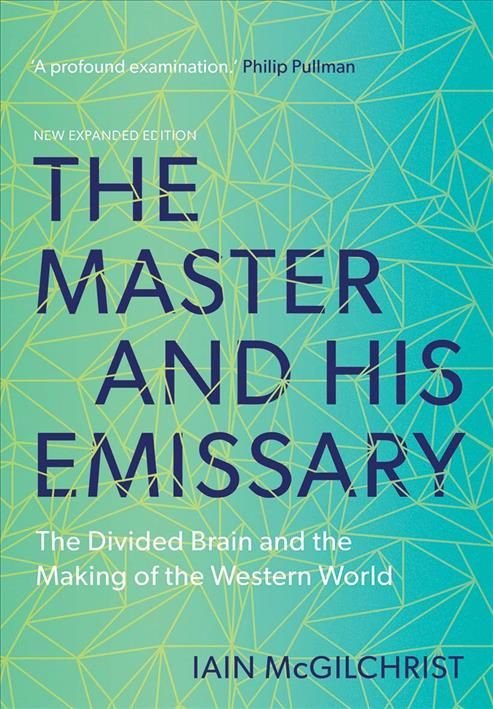
He suggests that in order to understand ourselves and the world we need science and intuition, reason and imagination, not just one or two that they are in any case far from being in conflict and that the brain's right hemisphere plays the most important part in each.Īnd he shows us how to recognise the 'signature' of the left hemisphere in our thinking, so as to avoid making decisions that bring disaster in their wake. In doing so, he argues that we have become enslaved to an account of things dominated by the brain's left hemisphere, one that blinds us to an awe-inspiring reality that is all around us, had we but eyes to see it. How can we understand consciousness, matter, space and time?Ĭan we really neglect the sacred and divine? In this landmark new book, Iain McGilchrist addresses some of the oldest and hardest questions humanity faces - ones that, however, have a practical urgency for all of us today. And now it was happening for a third, and possibly last, time.


On each occasion this heralded the collapse of a civilisation. Twice before, in ancient Greece and Rome, the perception that evolved in the left hemisphere, which empowered us to manipulate the world, had ultimately come to eclipse the much more sophisticated take of the right hemisphere, which enabled us to understand it.

In his international bestseller, The Master and his Emissary, McGilchrist demonstrated that each brain hemisphere provides us with a radically different 'take' on the world, and used this insight to deliver a fresh understanding of the main turning points in the history of Western civilisation. Is the world essentially inert and mechanical - nothing but a collection of things for us to use? Are we ourselves nothing but the playthings of chance, embroiled in a war of all against all? Why, indeed, are we engaged in destroying everything that is valuable to us?


 0 kommentar(er)
0 kommentar(er)
